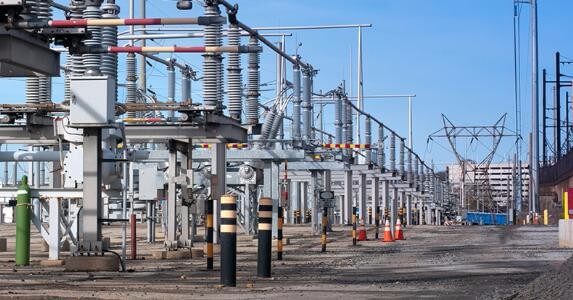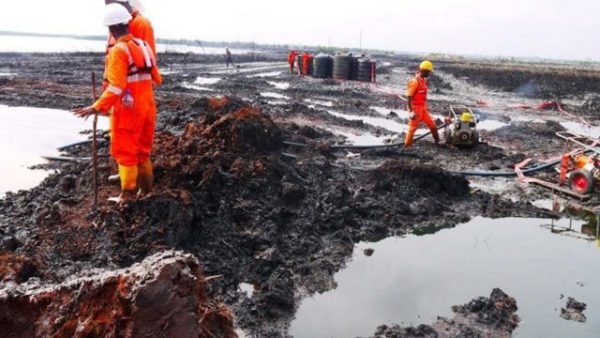Nigeria Loses 3,036MW as Six Power Plants Remain Shut
- Generation dips to 3,399MW N1.46bn lost in one day
Nigeria loses 3,036 megawatts of electricity as six gas-fired power generation plants have not been able to generate electricity to the national grid as a result of operational challenges and gas supply constraints, a daily operational record for July 21, which media source obtained from the Office of the Vice President, Yemi Osinbajo, has shown.
As the power sector contends with the challenges of inadequate supply of gas and other operational challenges, the 11 electricity distribution companies (Discos) yesterday claimed that they lose an average of N48 from every kilowatt hour (kWh) of electricity they distribute because of the non-review of electricity tariffs in the past 30 months.
The power plants, which do not have gas to operate were the 634.5 megawatts (MW) Calabar National Integrated Power Project (NIPP) plant built in the Odukpani area of Cross River State by the Niger Delta Power Holding Limited (NDPHC); 754MW Olorunsogo NIPP plant; and 504MW Alaoji NIPP plant.
According to the record, the three plants could not generate 230MW; 360MW; and 360MW respectively.
However, the reasons for the shutdown of three other plants – 270MW AES power plant; 180MW Rivers IPP and ASCO plant were not stated.
Other plants such as the Omoku in Rivers State; Omotosho NIPP in Ondo State; Geregu NIPP in Kogi State; Omotosho II; Olorunsogo in Ogun State; Geregu 1; Afam VI; Azura Edo; Egbin in Lagos State; Delta; Shiroro; and Jebba had challenges of gas, and water, as well as frequency constraints.
For the period under consideration, the record indicated that these constraints prevented the generation of 3,036MW of power, while only 3,399MW was available to the grid.
It further explained that 1,664MW was not generated due to unavailability of gas, 1,293MW due to frequency constraints, 39.4MW due to unavailability of transmission infrastructure, and 40MW due to water management issues.
Further the record showed that for the period, Delta; Egbin; Shiroro; Azura Edo; Afam VI; Geregu; Olorunsogo; and Omotosho NIPP plants could not generate 431.25MW; 445.66MW; 230MW; 211MW; 225MW; 168MW; 140MW; and 120MW respectively because of frequency constraints.
Also, the Jebba power plant could not generate 40MW because of water management, while Olorunsogo; Omotosho; Geregu and Omotosho NIPPs lost 152MW; 152MW; 145MW; and 120MW respectively on account of gas constraints even though they were operational.
Equally, Ibom power plant could not generate 39.4MW because of line constraints.
“On July 21, 2018, average power sent out was 3,399MWh/hour – down by 81MWh/h from the previous day. 1,664MW was not generated due to unavailability of gas. 39.4MW was not generated due to unavailability of transmission infrastructure, while 1,293MW was not generated due to high frequency resulting from unavailability of distribution infrastructure. 40MW was recorded as losses due to water management. The power sector lost an estimated N1, 457,000,000 on July 21, 2018 due to insufficient gas supply, distribution infrastructure and transmission infrastructure,” said the report.
It further explained: “On July 20, 2018, average power sent out was 3,480MWh/hour – down by 381.22MWh/h from the previous day. 1,626MW was not generated due to unavailability of gas. 196.6MW was not generated due to high frequency resulting from unavailability of distribution infrastructure. 160MW was recorded as losses due to water management.
“The power sector lost an estimated N1,432,000,000 on July 20, 2018 due to insufficient gas supply, distribution infrastructure and transmission infrastructure. The dominant constraint on July 20, 2018 remained unavailability of gas – constraining a total of 1,626MW from being available on the grid.”
Meanwhile, the 11 electricity distribution companies (Discos) yesterday claimed that they lose an average of N48 from every kilowatt hour (kWh) of electricity they distribute because of the non-review of electricity tariffs in the past 30 months.
According to a statement from their umbrella body – the Association of Nigerian Electricity Distributors (ANED) – in Abuja, the loss started from February 2016.
ANED said the suspension of the review of tariffs, which ought to be done every six months by the Nigerian Electricity Regulatory Commission (NERC), had added to the performance issues in the sector it described as being capital-intensive.
“Through the regulatory and policy actions that have been principally driven by the minister, the Discos have been forced to sell their product which should retail for an average retail tariff that is more than N80/kWh, at an average retail price of N32/kWh,” ANED said in the statement.
It further claimed that a government agency like the Rural Electrification Agency (REA) was using tax payers’ funds to do three megawatts (MW) project in Sokoto at $5.6 million per megawatts; and $2.02 million for a two megawatts project in Anambra.
“It is remarkable because the government has robustly challenged, as exorbitant, the proposed price of $1.5m/MW put forward by power developers from the private sector and sought a reduction of same,” the Discos claimed.
“While we acknowledge and are sympathetic to the government’s challenge of maintaining the balance between the myriad of its obligations and its fiscal constraints, continued failure to address this pricing gap means that we will only arrive at, and continue to exist in our current situation – N1.3 trillion of market shortfall and growing; absence of the pricing signal that will grow electricity supply along the NESI value chain,” the Discos added.
ANED said Nigerians were not getting value for taxpayers’ funds being channelled to misguided projects by REA, and the Transmission Company of Nigeria (TCN).
It said: “Should the unserved rural dwellers, who should be legitimate beneficiaries of REA’s funding and services, continue to live in darkness, due to the ministry’s and REA’s misguided priorities?
“Should TCN, an entity without a distribution licence, continue to engage in opaque ‘eligible customer’ transactions, rather than investing its limited funding in expanding and stabilising the grid, for increased energy to our customers?” the companies queried.









